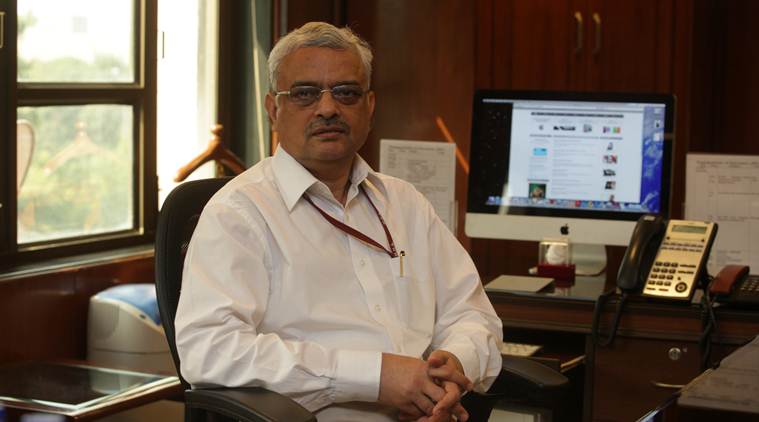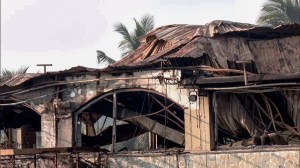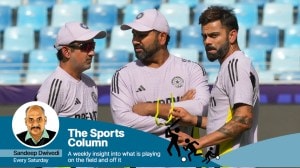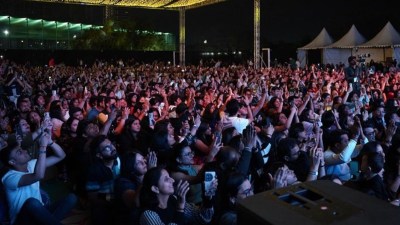THE Election Commission, if need be, is equipped to conduct polls simultaneously in eight states, at the most, along with the Lok Sabha elections next year, Chief Election Commissioner (CEC) OP Rawat said Tuesday.
His clarification has a direct bearing on the debate and speculation over 12 states going to poll with the general elections next year.

In 2019, according to Rawat, EC will have just enough voter verifiable paper audit trail (VVPAT) units to hold elections in Odisha, Telangana, Andhra Pradesh, Sikkim and Arunachal Pradesh (whose Assembly terms are already in sync with the Parliament) and another three states, at the most. Anything more than this will have to deal with logistical challenges.
“We need about 14 lakh (VVPAT) machines for Lok Sabha (elections) plus five states, whereas we have ordered 17.4 lakh (VVPAT) machines. There will be a cushion of 2.4 lakh units, which is enough to cover three large states. For instance, Madhya Pradesh needs 80,000 VVPATs. Any (three) other state(s) with such requirement can (also) be catered to (in 2019),” the CEC told The Indian Express.
Rawat ruled out the possibility of any delay in holding elections in Madhya Pradesh, Rajasthan, Chhattisgarh and Mizoram, which are due this year.
READ | Amit Shah to Law Commission: Simultaneous elections can be implemented
“The (Election) Commission has already moved ahead and is reviewing the preparedness for polling in four states — Madhya Pradesh, Rajasthan, Chhattisgarh and Mizoram. And most likely these elections will be delivered before December 15. It’s quite hypothetical to think that these (four elections) are getting postponed,” he said.
Story continues below this ad
“As for Lok Sabha polls and states going to elections with it, five states have to go to polls with (Lok Sabha) — Orissa, Telangana, Andhra Pradesh, Sikkim and Arunachal Pradesh. In case (another) one or two states decide or choose to dissolve their assemblies prematurely to sync their elections with Lok Sabha, our cushion (VVPAT reserve) will be able to cater to it,” he reiterated.
Rawat’s statement is significant against the backdrop that elections in Haryana, Maharashtra and Jharkhand are due in the latter half of 2019.
When asked what if President’s rule is imposed in Madhya Pradesh, Rajasthan, Chhattisgarh and Mizoram, as suggested by some BJP leaders yesterday, to synchronise their elections with those due in 2019, Rawat said, “We don’t visualise such a situation because President’s rule can’t be applied like this.”
President’s rule, under Article 356 of the Constitution, can only be imposed when certain conditions are satisfied. These include the collapse of a coalition government, the incumbent government losing majority in the state Assembly, the inability of the legislature to elect a leader as the Chief Minister and delay in declaration of elections for unavoidable reasons.
Story continues below this ad
On Monday, BJP chief Amit Shah wrote to the Law Commission expressing support for Prime Minister Narendra Modi’s “One nation one election” idea. According to him, the Opposition’s objections to the idea were “politically motivated and inappropriate”.
Although conducting polls in all states and to the Lok Sabha simultaneously requires six constitutional amendments, sources in the BJP have said that holding elections in as many as 12 states along with the Lok Sabha polls next year would not require any changes to the Constitution.
Explaining the above hypotheses, a party source had told The Indian Express that elections in Madhya Pradesh, Rajasthan, Chhattisgarh and Mizoram could be postponed and President’s rule imposed in these states as the term of their state assemblies ends in November-December.
For the BJP-ruled states such as Maharashtra, Haryana and Jharkhand, whose term ends in the second half of 2019, their assemblies could be dissolved early to synchronise their polls with Lok Sabha elections and polls in Orissa, Telangana, Andhra Pradesh, Sikkim and Arunachal Pradesh. However, Rawat’s clarification makes the above sound more hypothetical than anything else.

 Chief Election Commissioner O P Rawat’s clarification has a direct bearing on the debate and speculation over 12 states going to poll with the general elections next year.
Chief Election Commissioner O P Rawat’s clarification has a direct bearing on the debate and speculation over 12 states going to poll with the general elections next year.






